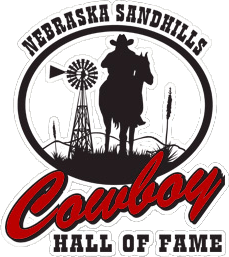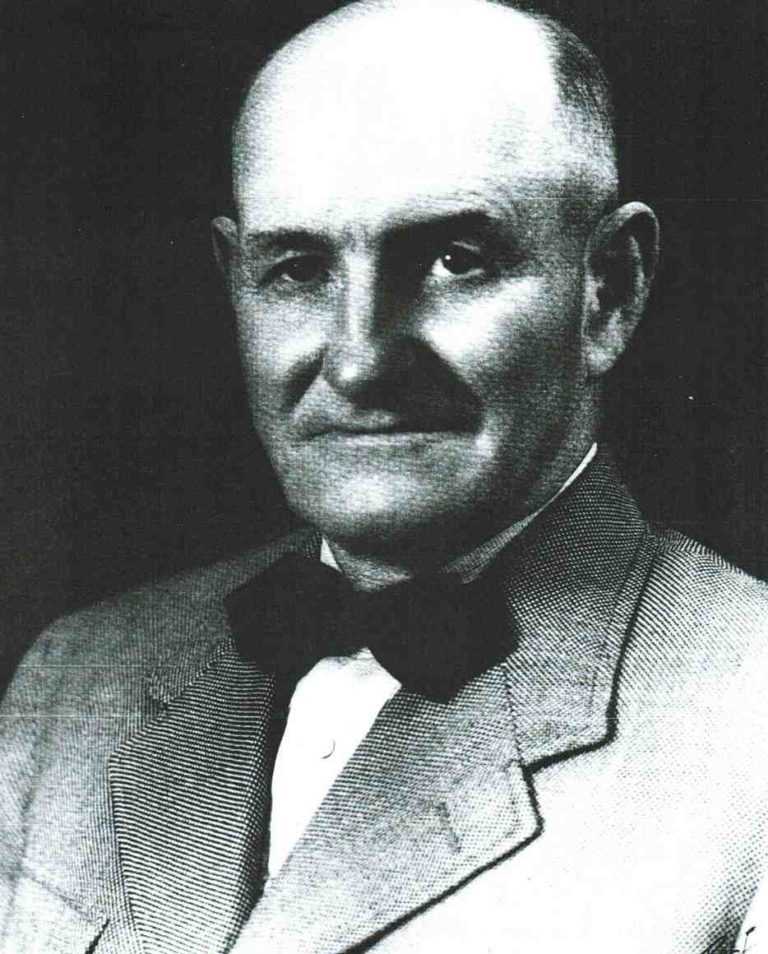August 3, 1893-July 25, 1975
Walter Percival Haythorn was born on August 3, 1893. Walt attended the Business College in Grand Island for one year. In 1914, he married Hazel Menter, daughter of Charles Menter, the first qualified veterinarian and auctioneer in the Ogallala area. Hazel was actively involved in ranching all of her life. Hazel’s sister would eventually marry Harry Jr. in 1921. The brothers both established homes on the ranch, with Harry on the ‘South Ranch’ near the North Platte River and Walt and Hazel living on what is known today as the “Home Place” five miles southwest of Arthur, Nebraska. Harry Sr. and Emma bought the Jim McGinley place in the old Lemoyne vicinity, and moved there in the fall leaving management of the home ranch to Walt. “Take charge and work together,” their father advised them in his usual economy of words. “You have a future here if you’ll see it through. It won’t be easy, but you’ll be rewarded.” Two major blizzards within 18 years both caused devastating losses to the ranch, but Harry and his sons led on.
The blizzard of 1931 almost finished Walt personally, for good. Confused by the swirling of the storm, Walt lost his directions until his horse blundered into the fence. Walt knew he had to follow the wire or die. Keeping his horse as close to the fence as possible, he slid his foot along the top strand, blindly following the wire and hoping the storm would slack enough to let him get his bearings. Post by post, gate by gate, he inched along until he came to a familiar gate below the ranch house. He chanced a straight cut to the house and barely made it. It took him more than ninety minutes to travel less than a mile. “My overshoe was ripped to pieces and my boot was almost cut in two by the barbs,” he recalled. “My horse’s shoulder was a bloody mess from hitting the fence, but we made it.” The ranch was literally devastated by the storm.
Walt and Harry’s commitment to the heritage they’d been entrusted with would be sorely tested through these bleak years. Walt was a religiously frugal man by nature and ranch families in general were sufficient in supplying their basic needs for sustaining life. Hard cash was another story. The day to day needs for living were met by the animals and produce they raised on their property. In spite of the hardships, they continued to do what they knew best, and ‘make do’ with what they had. Waldo grew up learning to be a top hand by following in the footsteps of his father. Though a stern taskmaster, Walt was thorough in everything he undertook, and the wisdom he passed on would be remembered by his son for many years.
One of the things he passed on was the love of rodeo and competition. Walt was a successful competitor from the time he first won the bronc riding in 1918 at the Lincoln County Fairgrounds until he placed second in the calf roping in the 50 and over contestants at Laramie, Wyoming. In 1956, at 61 years of age, he finally decided to call it quits in rodeo. Walt rode bucking horses, wrestled steers, competed in steer roping, calf roping, and eventually cutting. Whatever he took an interest in, he gave everything he had&helip;.both in his interests as well as his few vices. If Walt liked you, he was courteous and sociable, if he didn’t, you may as well not waste your time or breath in his presence. When he left the house for the day, he went prepared for any possible event that might occur. He firmly believed that anyone who was unprepared physically, mentally or otherwise was surely weak in character and presence.
Walt was honored with numerous awards in the agricultural industry including: the Nebraska Stockgrowers Award of Merit, the Ak-Sar-Ben Western Hall of Fame, being a leader in the development of cutting horses in the state, the Buffalo Bill “Trail Boss” award, and many more. One of his personal favorites was the award for Rocky Red’s bridle-less cutting and a Bronze Award by the National Cutting Horse Association to Rocky Red, “in recognition of having won in excess of $10,000 through outstanding achievement in competition.” He was a signature member of the organization called the “Turtles”, which eventually became the Rodeo Cowboys of America (RCA) and ultimately the PRCA.
Walt passed away at the age of 81 from complications following a fractured hip. He would long be remembered as a pioneer in breeding superior horses, and successfully promoting the young sport of rodeo as a worthy competitor.

